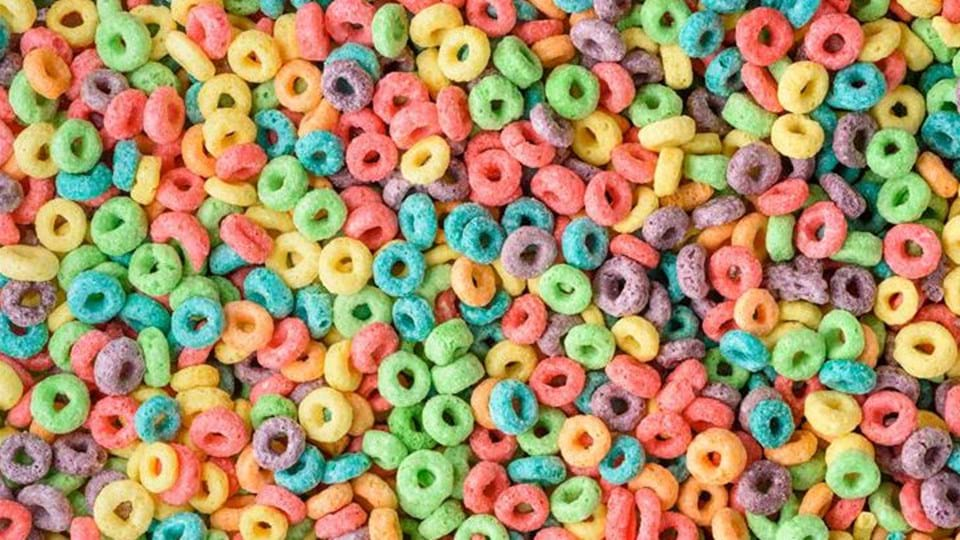Chones / Shutterstock
FOUR food manufacturers have pledged to eliminate synthetic dyes from products sold in the US by 2028, following on from health secretary Robert F Kennedy (RFK) Jr’s proposal to ban them entirely.
Kraft Heinz, General Mills, and Conagra Brands have announced plans to eliminate synthetic dyes from all US products by the end of 2027, while Nestlé said last week it would achieve this within the next 12 months.
Currently, seven certified Food, Drug, and Cosmetic (FD&C) dyes are approved for use in foods in the US by the Food and Drug Administration (FDA), including Yellow No. 5 (tartrazine). In March, RFK Jr warned food and drink manufacturers of his intent to ban all seven dyes entirely.
Kraft Heinz said they will replace the synthetic dyes either with natural colourings, such as dyes from beetroots and grape skins, or by “reinventing” colours and shades if natural alternatives do not exist. They also said they will remove colourings without replacement “where it is not critical to the consumer experience”. Kraft Heinz says that around 90% of its US products by net sales are already free of synthetic dyes. General Mills, meanwhile, says 85% of its US products are already dye-free.
In addition, Kraft Heinz will immediately cease the launch of new US products containing synthetic dyes.
Conagra, known for its Birds Eye and Healthy Choice brands, has also said it plans to remove synthetic dyes from all frozen products sold in the US by the end of 2025, while making a pledge to stop offering dye-containing products to US schools by the start of the 2026-27 school year. General Mills, which makes brands including Cheerios cereal and Häagen-Dazs ice cream, has made the same promise, adding that “nearly all” of its school products are already free of synthetic dyes.
Jeff Harmening, CEO of General Mills, said: “Across the long arc of our history, General Mills has moved quickly to meet evolving consumer needs, and reformulating our products portfolio to remove certified colours is yet another example”.
Across the pond
The adverse health impacts of the seven FD&C dyes are debated. While the previous US administration banned Red No. 3 (erythrosine) in January, citing a 30-year-old study linking it to cancer in rats, the FDA maintained its belief that it was unlikely to have the link in humans.
The most cited health concern linked to synthetic dyes is their potential impact on children’s behaviour. A 2022 report by the National Institutes of Health reviewed 25 studies and found that just over half suggested a connection between food dye exposure and behavioural issues in children. However, only one of the seven dyes being phased out of US products – Green No. 3 (fast green) – is banned for use in food products in Europe.
More serious health risks are thought to arise from other food additives banned in Europe but certified in the US. These include potassium bromide, added to white flour to make dough rise higher and banned in the UK since 1990 owing to cancer links in animals; azodicarbonamide, a whitening agent used in dough and banned in the EU for over 15 years as a possible carcinogen; butylated hydroxyanisole and butylated hydroxytoluene, used as preservatives and banned in Europe as possible carcinogens.
The colouring titanium dioxide is also banned in Europe, owing to potential genotoxicity, but not in the US. It does not come under the FDA’s seven FD&C dyes and will be unaffected by the changes planned by the four food giants.
